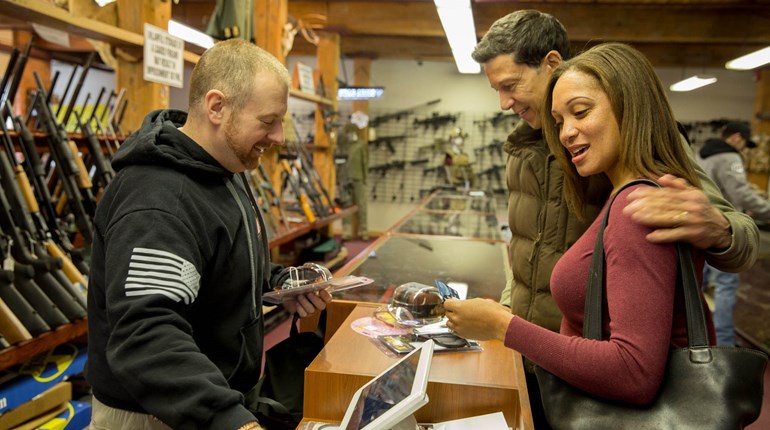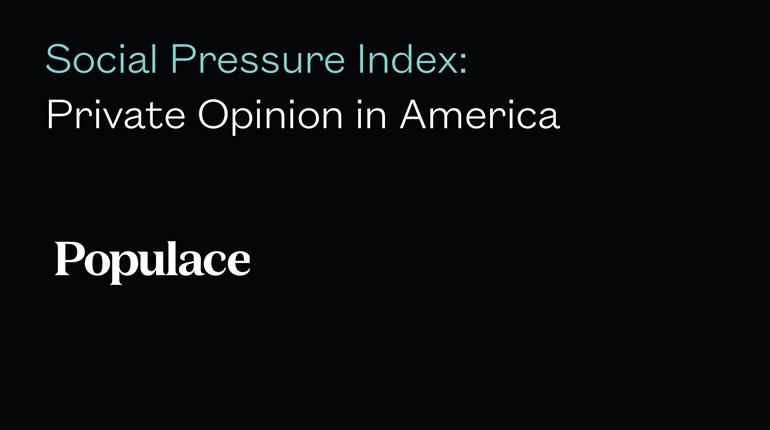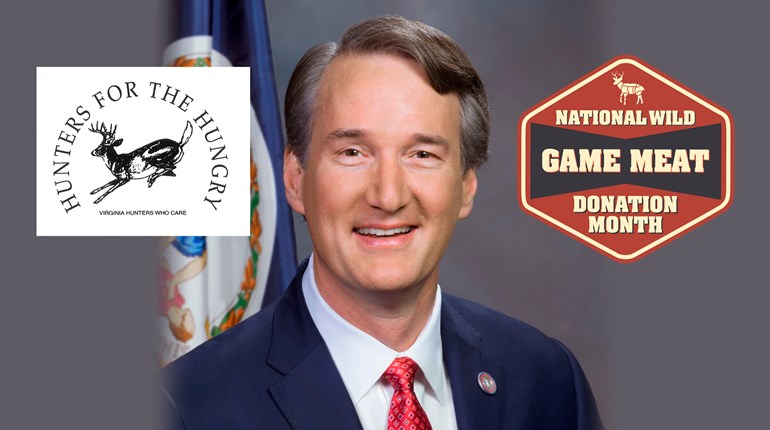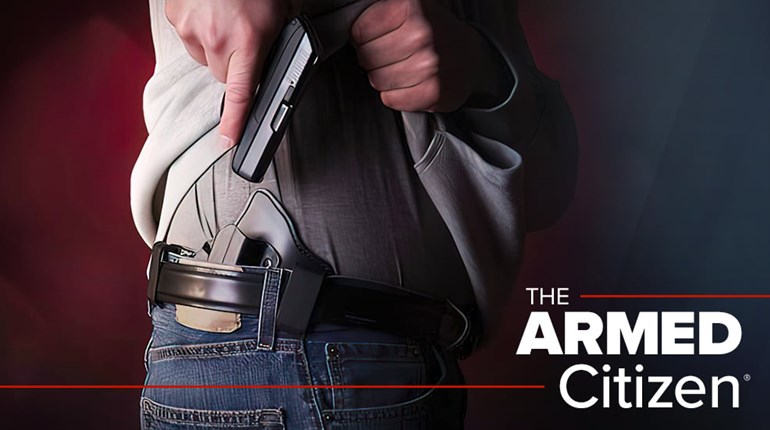
Most of us have learned firsthand that, to put it kindly, social-media platforms are cultural mixing grounds. They are places where we can find people who have similar interests to ours. They are also places where a diverse mix of people can meet, be surprised by each other and debate.
For America’s 100 million-plus gun owners, this is theoretically a very good thing, as the facts are on freedom’s side. A big hindrance to this unique American freedom is the ignorance—specifically the fear that comes from ignorance—so often projected by those with little or no gun experience. This is especially true of people with no firearms experience who get all their news from Facebook and the mainstream media.
When today’s social-media giants were established (Facebook was founded in 2004 and Twitter in 2006), those running the social-media companies were sure their public and free platforms would bring all of us together. Over the last 15 years or so, social media has done that, but it has also divided us further as some people use the platforms to troll, to form mobs and to attack, ridicule and shame those they don’t agree with.
All of this might work itself out in these digital public squares if the referees—those in control of these social-media companies—weren’t at times arguably using their often-progressive political views to take sides.
Last July this happened to John Lott, the founder and CEO of the Crime Prevention Research Center (CPRC) and the author of More Guns, Less Crime and other books. Lott was blocked from his Twitter account for sending the tweet: “New Zealand’s killer’s manifesto says that he did attack to get more gun control/gun bans in New Zealand and the U.S., Killer was a socialist, environmentalist who hated capitalists and trade.”
Before getting into this, it is worth repeating that Twitter, Facebook and so on are private companies. They are not government agencies. Your First Amendment right to free speech does not restrict Twitter from taking down a post or from blocking someone from using their platform. The First Amendment right to free speech and other constitutionally protected rights are restrictions on government, not on private citizens or companies.
That said, it is also important for us to use our First Amendment-protected right to speak to defend our Second Amendment right to bear arms. If Twitter, for example, is playing politics by blocking some voices for political reasons while promoting others—many conservatives are accusing them of this—then it is fair and even important for gun owners to call them out, especially when we have specific examples.
In Lott’s case, he also put a link into his “objectionable” tweet to point people to a story on his website that explained, with more links, that his tweet is accurate. That was no defense, according to Twitter. Unfortunately, it requires speculation to answer why, as Twitter neglected to tell Lott why they blocked his account. Twitter did send Lott a note saying his account was blocked and that it “violated the Twitter Rules, Specifically for:” but then Twitter didn’t list anything after the colon. Lott appealed to Twitter and asked for more information. Twitter then told Lott he lost his appeal, but again didn’t say why.
“Truth, I suppose, is no defense,” says Lott. “I can and have proven that my tweet is factually accurate.”
“… it is also important for us to use our First Amendment-protected right to speak to defend our Second Amendment right to bear arms.”
To get his account back—and to reach the 28,000 followers he has—he was told he’d have to log in to his account and follow instructions that he supposes would include deleting the offending tweet. He’d then have to, going forward, refrain from, say, tweeting politically incorrect facts? It is hard to say as Twitter declined to give specifics.
Again, Twitter has the right to do this, but the thing is, when they do speak publicly before Congress and in other venues, Twitter has often denied playing politics like this. Twitter’s CEO, Jack Dorsey, even denied any bias when he testified before Congress by saying, “Let me be clear about one important and foundational fact: Twitter does not use political ideology to make any decisions, whether related to ranking content on our service or how we enforce our rules. We believe strongly in being impartial, and we strive to enforce our rules impartially.”
Blocking Lott for this tweet, however, sure appears to be politically motivated. This perception is held by a majority of Americans. A June 2018 Pew poll found that 72% of Americans believe that social-media companies censor views they don’t like, with most saying they believe the big social-media companies favor liberals over conservatives.
Meanwhile, Facebook, Twitter and YouTube prohibit ads for many legal products, including guns, ammunition and firearm-related accessories. These social-media companies treat guns as objects that are far beneath their enlightened sensibilities. YouTube has also taken down videos that show people how to do basic upgrades to firearms. Some gun enthusiasts have even had their channels blocked and their videos taken down.
To see whether there is an empirical basis for these censorship claims, Richard Hanania, Ph.D., a postdoctoral research fellow at the Saltzman Institute of War and Peace Studies at Columbia University, put together a database of prominent, politically active social-media users known to have been temporarily or permanently suspended from Twitter. “Of 22 prominent, politically active individuals who are known to have been suspended since 2005 and who expressed a preference in the 2016 U.S. presidential election, 21 supported Donald Trump,” said Hanania.
Inside the Social-Media Gun-Rights Battles
Lott seems to have been blocked for telling the politically incorrect truth. It is inconvenient to the Left that the New Zealand murderer is a leftist. This fact has been so little reported that perhaps whomever hit the censorship button at Twitter had never heard these facts and so thought they just can’t be true if the mainstream media didn’t report them. If that is what happened, then Lott is a casualty of ignorance and an unwillingness of Twitter personnel to coolly look at facts not vetted by the Huffington Post or CNN.
Frequently, people get blocked after someone—often an activist—reports them. As the politics of those who work for these San Francisco-based social-media companies tend to be progressive, perhaps they are simply more likely to believe and to side with those who have similar political views to theirs.
Given this climate and perceived institutional bias, gun owners, especially vocal Second Amendment advocates, are likely to experience the social-media cultural war over guns firsthand. The messages gun owners get from social-media extremists can be nasty.
Shannon Watts, founder of the gun-control group Moms Demand Action, for example, pushes a lot of hate toward the NRA and gun owners in general. In 2013, Moms Demand Action partnered with the Michael Bloomberg-funded Mayors Against Illegal Guns to form Everytown for Gun Safety.
On her Twitter account, Watts has given herself the self-congratulatory label of, “The @NRA’s worst nightmare.” A favorite Twitter tactic of hers is to share a news story about a crime committed by an armed criminal and then to blame law-abiding gun owners and the NRA for the crimes. In June 2019, Watts’ Twitter account showed a photo of the mentally ill murderer who decided to take on a Dallas, Texas, courthouse. Watts’ headline for her post: “The @NRA’s America.”
In another Twitter post related to the Dallas situation, Watts wrote, “White male supremacists use guns in 70% of domestic terror attacks and own the most deaths by domestic extremists.” Watts’ line of reasoning is that anyone with a firearm is likely a bigoted, unbalanced racist just looking for the chance to harm innocents.
One common theme from Watts’ followers can be summed up in this June 2019 reply to one of her Twitter posts: “When will politicians start calling the NRA what it is: a domestic terror organization?” (This terrorist organization accusation is commonly repeated by those who hate the Second Amendment and the NRA—there is actually a hashtag that reads: “#NRATerrorism”.)
Despite this hate, social media does give gun owners the ability to push back with the facts. Many political analysts have even credited Twitter with helping Donald Trump become the 45th president of the United States, as Trump used Twitter to reach out to voters directly. He bypassed the media filters. Though some publicly petitioned Twitter to ban Trump, Twitter declined to do so. Perhaps Trump was just too big for Twitter to impede.
Meanwhile, Second Amendment advocates are pushing back with some successes. Yes, successes. When politicians who like blaming law-abiding gun owners for the actions of criminals, for example, blamed gun owners and our freedom for the actions of a murderer in Virginia Beach, Va., in May 2019, a lot of people tweeted back the facts. Senator Bob Menendez (D-NJ), for example, posted numerous tweets about the Virginia Beach murders, including: “The @NRA is clearly more interested in protecting gun silencers—a tool that makes it easier to kill—than protecting American lives. The #VirginiaBeach shooter’s silencer made it harder for victims to hear the gunfire, and 12 senselessly died.”
The responses from Second Amendment supporters were swift and definitive: “You have obviously never heard a gun with a ‘silencer.’ This is absolute fiction,” tweeted one person. “Suppressors do not silence. The gunshot is still very loud,” wrote another. “Hundreds of thousands of legal silencers out there, yet this is the first time one has ever made the news for being used in a murder. Criminals make their own illegal silencers and even then, they are rarely used in crimes. Silencers are hearing protection, period,” tweeted another.
Some provided links to scientific articles on firearms suppression that refuted Menendez’s claims. Pro-suppressor comments actually greatly outnumbered anti-suppressor comments. While Menendez is unlikely to ever change his stance on the Second Amendment, that isn’t likely true of everyone who reads Twitter conversations like this one.
Unfortunately, some of the pro-suppressor responses to Menendez’s tweets did include insults and profanity. This approach makes it easier for those who know little about the issues to discount the pro-freedom comments. Gun owners need to be the adults in the conversation.
When Social-Media Mobs Attack
Too many gun owners have been the victims of social-media mobs. What happened to the founders of Coyotefreaks is a good example.
Shae Reber and Jason Smith launched Coyotefreaks three years ago on Facebook and Instagram. Born and raised in Utah, the pair has hunted together since their teens and, after much encouragement from friends and family, started Coyotefreaks to connect with other hunters.
“Instagram standards say you can’t bully or threaten. But that’s exactly what these people were doing.”
The Instagram account quickly became the focal point of Coyotefreaks. Reber and Smith frequently posted photos of their hunts and the guns and other gear they used. They began generating a following.
But in June 2019, the Coyotefreaks Instagram account started being hit with a veritable avalanche of messages, hundreds and hundreds per day. Most of the messages were negative comments about hunting, many of them filled with profanity. As the daily message barrage increased, Reber and Smith began receiving death threats.
“I hope your whole family dies for being a piece of s---,” one of the messages read. “I hope you both get killed,” said another.
“We were bombarded with these kinds of messages for weeks,” Reber said. “Instagram standards say you can’t bully or threaten. But that’s exactly what these people were doing.”
“We’ve reported these messages to Instagram,” said Smith. “They’ve never responded. But they took down one of our posts recently, telling us it was hate speech. It was a picture of a coyote we bagged on a recent hunt. That’s hate speech. Threatening to kill my family? Apparently, that’s okay with Instagram.”
Reber and Smith feel Instagram administrators have implicitly approved of the attacks against Coyotefreaks. They also believe the attacks against their Instagram account and other hunting accounts are planned and coordinated.
“You’ll see the same hashtags in the messages,” Smith explained. “So the comments get shared and the shares generate more hate and threats. I think these people are looking for pages like ours, so they can try to get them shut down.”
“We recently changed our Instagram account from public to private,” said Reber. “That’s stopped most of the hate messages. But, of course, we started Coyotefreaks so we could connect with hunters like ourselves, all over the country. Right now, we’re really not sure if we are going to continue.”
The NRA Hunters’ Leadership Forum (NRAHLF.org) has also reported death threats against hunters who posted on Facebook. There was even a Facebook page entitled “Hunt the Hunters” that suggested various ways to stalk and harm hunters afield.
Numerous hunters have also reported their hunting photos being removed by Facebook administrators after they were reported by anti-hunting activists.
Gun-control advocates also have a strong, active and vindictive presence throughout Facebook. Consider, for example, the group “Gun Control. Now.” and their Facebook activities. In May 2019, their Facebook page posted a photo of a man apparently practicing the open carry of a pistol in what appeared to be a public venue. The words “Carries a gun because he trusts nobody. Expects you to trust him” are super-imposed over the photo.
The headline on the original post reads: “How awful a person must you be that you can’t go anywhere without a loaded gun because you think everyone is as awful as you? #GunControlNow.”
The comments that followed this post included: “#herocomplex Such sad little men”; “Any excuse to carry a gun, act tough just like a cop”; and “‘Welp. I might need to kill someone today.’ Sick.”
Plus, several comments repeated the trite pop-psychology that owning a firearm means the person has various dysfunctions, physical and emotional.
The NRA-focused comments on this particular post were plentiful, too. One fan of the “Gun Control. Now.” Facebook page wrote: “The trolls can’t feel masculine without a weapon. NRA=DTO. Outlaw the Outlaws.” (“DTO is a slang reference that refers to both “Doomed to Obscurity” and “Destroy the Opponent.”)
What is a Gun Owner to Do?
Miles Hall was a longtime owner/operator of a firearms retailer and shooting range owner. Hall and his wife sold off the business a couple years ago and today he is a partner in Hall-N-Hall Consulting, which helps FFL retailers generate more business. His advice: When challenged on social media, educate; don’t try to humiliate.
“It can feel good to tell off someone who is doing mean-spirited posts on your Facebook page or Instagram account,” Hall said. “We used to get it frequently with so-called ‘assault rifles.’ People would post on our Facebook page, ‘How can you sell those evil assault rifles! You’re helping mass murders!’”
Instead of firing off equally impassioned responses, Hall would politely answer with the actual definition of an “assault rifle” and how the store did not in fact sell these. He’d also provide links to articles showing that legally owned full-auto firearms were rarely if ever used in criminal acts. The positive responses generated by Hall’s approach far outnumbered the negative.
Today, Hall advises his clients to do the same, and he believes the approach works to the betterment of our larger pro-Second Amendment positions.
“Address the issues that come up on social media, but be polite and forthright,” Hall says. “Share legitimate information. The person who posted the statements may be incapable of changing their mind, but those who read your responses can come away with a better understanding.”
Another option is to let the market work by switching to friendlier platforms. There are many other social-media venues on the digital landscape, including options like AllSocial, MeWe and Gab. Most of these networks promise little censorship (death threats and “hate speech” being the exceptions).
“I am seeing niche networks pop up that are based on our conservative, hunting and Second Amendment lifestyles,” said Josh Clafin, founder of Garrison Everest, a marketing/PR agency for shooting-sports companies. “One network that looks promising is USA.life. I’ve found Quora to be a good social-media platform for voicing opinions and answering anti-gun comments. People there are more often asking legitimate questions and Quora provides a great way for Second Amendment supporters to explain their positions.”
But Clafin warns against the “echo chamber” that can occur with these smaller social-media venues. If we want to engage in the larger discussion concerning our rights with those who actively oppose us, we need to grapple with the anti-gun realities of giant social-media companies.
Emotion Versus Reason
Researchers at the University of Wisconsin-Madison collected and analyzed over 13 million Twitter responses to mass murders between 2012 and 2014, looking for social-interaction patterns. The research was recently published in the peer-reviewed Journal of Computer-Mediated Communication. After such events, outpourings of sympathy quickly appear, spike and trail off noticeably. Interestingly, though, “Second Amendment proponents sustain[ed] their perspective” on Twitter far longer and more forcefully than those calling for more gun control.


































